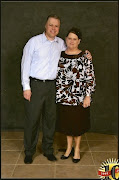OK--Let's have a little humor with this.
Hymns vs. Choruses
An old farmer went to the city one weekend and attended the big city church. He came home and his wife asked him how it was.
"Well," said the farmer, "it was good. They did something different, however. They sang praise choruses instead of hymns."
"Praise choruses?" said his wife. "What are those?"
"Oh, they're OK. They are sort of like hymns, only different," said the farmer.
"Well, what's the difference?" asked his wife.
The farmer said, "Well, it's like this - If I were to say to you "Martha, the cows are in the corn"' - well, that would be a hymn. If on the other hand, I were to say to you:
Martha, Martha, Martha,
Oh Martha, MARTHA, MARTHA,
the cows, the big cows, the brown cows, the black cows
the white cows,
the black and white cows,
the COWS, COWS, COWS
are in the corn,
are in the corn, are in the corn, are in the corn,
the CORN, CORN, CORN.
Then, if I were to repeat the whole thing two or three times, well, that would be a praise chorus."
The next weekend, his nephew, a young, new Christian from the city came to visit and attended the local church of the small town. He went home and his mother asked him how it was.
"Well," said the young man, "it was good. They did something different however. They sang hymns instead of regular songs."
"Hymns?" asked his mother. "What are those?"
"Oh, they're OK. They are sort of like regular songs, only different," said the young man.
"Well, what's the difference?" asked his mother.
The young man said, "Well, it's like this - If I were to say to you 'Martha, the cows are in the corn' - well, that would be a regular song. If on the other hand, I were to say to you:
Oh Martha, dear Martha, hear thou my cry
Inclinest thine ear to the words of my mouth
Turn thou thy whole wondrous ear by and by
To the righteous, inimitable, glorious truth.
For the way of the animals who can explain
There in their heads is no shadow of sense
Hearkenest they in God's sun or His rain
Unless from the mild, tempting corn they are fenced.
Yea those cows in glad bovine, rebellious delight
Have broke free their shackles, their warm pens eschewed
Then goaded by minions of darkness and night
They all my mild Chilliwack sweet corn have chewed.
So look to the bright shining day by and by
Where all foul corruptions of earth are reborn
Where no vicious animals make my soul cry
And I no longer see those foul cows in the corn.'
Then if I were to do only verses one, three and four and do a key change on the last verse, well that would be a hymn.




